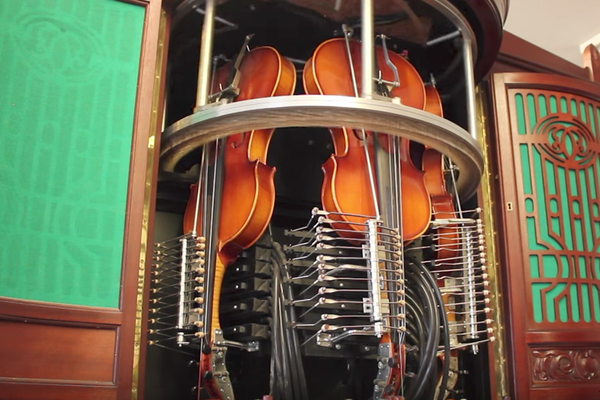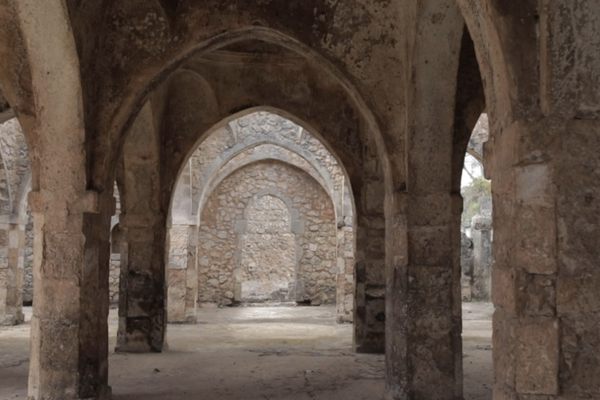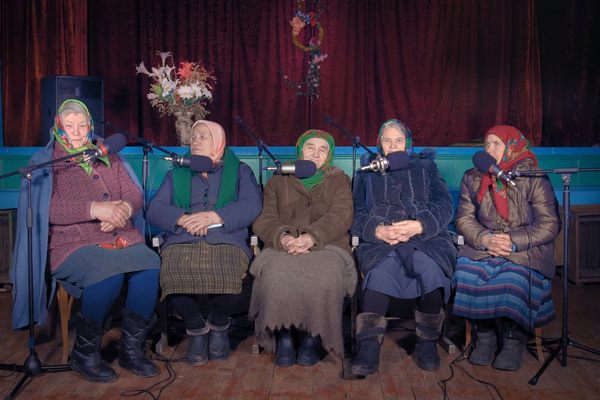Watch an Impromptu Medieval Icelandic Hymn Sung in a Modern Train Station
The acoustics of the German transit hub perfectly suit the centuries-old song.
Imagine making your commute home, bracing yourself for the human tsunami that is sure to greet you when cutting through a busy train station. Only this time, instead of the din of a bustling crowd, you’re met by an angelic chorus.
Fellow travelers silently wave you over to an open, domed hall, where the angels stand, singing in a semicircle. One is drinking a beer. Another is barefoot.

Okay, they’re not actually angels. They’re the Icelandic folk group Árstíðir. On this particular night, they had just finished a concert in Wuppertal, Germany, and were making their way back to their lodgings when they were struck by the station’s perfect acoustics. Its arched, stone ceiling created a cathedral-like environment.
Boosted by the success of the evening, the six men broke into song. A hush immediately fell over passersby, some of whom almost certainly missed their trains to stay and listen to the beautiful harmonies.
Despite the fact that this song, “Heyr himna smiður,” dates to around 1208 and the Wuppertal-Vohwinkel station opened in 1908*, the sound and the space seem perfectly suited to one another. At one point a public announcement is piped over an intercom. Instead of ruining the music it magically weaves a new voice into the harmonic tapestry.
Correction: A previous version of this article stated that the Wuppertal Hauptbahnhof was built in the mid-19th century. The concert took place in the Wuppertal-Vohwinkel station, which opened in 1908.






























Follow us on Twitter to get the latest on the world's hidden wonders.
Like us on Facebook to get the latest on the world's hidden wonders.
Follow us on Twitter Like us on Facebook